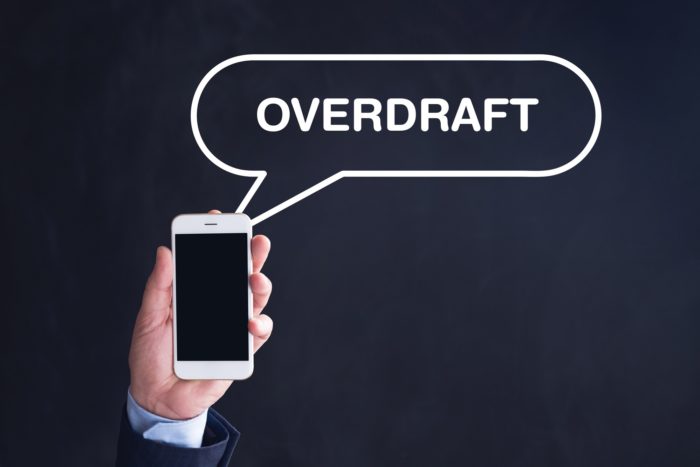Top Class Actions’s website and social media posts use affiliate links. If you make a purchase using such links, we may receive a commission, but it will not result in any additional charges to you. Please review our Affiliate Link Disclosure for more information.

These overdraft fees are assessed when a depositor makes a transaction that exceeds the balance of their checking account. Unfortunately, this has become a major source of revenue for banks and credit unions—and they tend to fall most heavily on low-income people who are already burdened by debt.
Sen. Booker is joined by his colleague, fellow Sen. Sherrod Brown of Ohio in his efforts to rein in financial institutions who have been accused of heavily abusing the practice in overdraft lawsuits filed over the last few years.
Origin of the Overdraft Fee
Originally, an overdraft fee was assessed when a bank or credit union customer wrote a paper check for an amount that was greater than his or her account balance. In such cases, the institution would cover the amount, then assess an overdraft fee. In exchange, the customer would avoid the extra costs and possible legal action associated with bouncing a check.
Today, most people use ATM cards. Thirty-five years ago, when the use of debit cards started becoming common a customer who attempted to make a purchase on their ATM or debit card against an insufficient balance would simply suffer a bit of embarrassment when the transaction was denied.
However, it also prevented a person from falling into debt from bouncing a check. By the late 1990s, financial institutions realized that a major source of revenue had disappeared – so they began allowing those transactions to go through, charging an overdraft fee of up to $35 for each time it happened.
By 2016, those overdraft fees added to approximately $15 billion in revenue for banks, almost 10 percent of the banks’ total revenue.
Hitting the Most Vulnerable
The $35 overdraft fee is charged whether it involves $2 or $2,000. According to the Consumer Financial Protection Bureau, most overdraft fees charged on debit card transactions are $24 or less. In terms of interest, that amounts to 17,000 percent.
Banks have also used tactics such as re-ordering transactions, processing them out of order so as to be able to maximize how many times an overdraft fee can be charged. This involves processing the biggest transaction first in order to make sure the account is overdrawn.
Every subsequent transaction triggers yet another overdraft fee—putting a depositor potentially hundreds of dollars in debt for relatively minor purchases. This can cause a downward cycle from which it is virtually impossible to escape.
The Pew Charitable Trust reports that 70 percent of those who are regularly charged overdraft fees make under $50,000 per year.
Fighting Back
In 2009, the Federal Reserve made new rules, requiring that banks get informed consent from depositors before enrolling them in an overdraft protection program.
However, these institutions have found ways to skirt those rules and make the process so obscure that most customers don’t know that they can opt out altogether and simply have their transactions declined when their balances won’t cover them.
The Booker-Brown bill, the “Stop Overdraft Profiteering Act of 2019,” would do the following if passed:
- Prevent banks from assessing an overdraft fee on ATM transactions
- Restrict the number of overdraft fees that could be charged on check-based transactions
- Stop the practice of re-ordering transactions
Unfortunately, with a Republican president and Senate, it is unlikely that bill will even reach the floor of the Senate—meaning that consumers will have little alternative other than to fight these practices in the courts.
If you were charged overdraft fees or NSF fees by your bank or credit union that you believe are improper for any reason, the attorneys who work with Top Class Actions are ready to investigate these fees on your behalf.
Learn more by filling out the form on this page.
This article is not legal advice. It is presented
for informational purposes only.
ATTORNEY ADVERTISING
Top Class Actions is a Proud Member of the American Bar Association
LEGAL INFORMATION IS NOT LEGAL ADVICE
Top Class Actions Legal Statement
©2008 – 2024 Top Class Actions® LLC
Various Trademarks held by their respective owners
This website is not intended for viewing or usage by European Union citizens.
Get Help – It’s Free
Join a Free Bank Overdraft Fee Class Action Lawsuit Investigation
If your bank and credit union has engaged in deceptive overdraft fee practices, you may have a legal claim. Fill out the form on this page now to find out if you qualify!
An attorney will contact you if you qualify to discuss the details of your potential case.
PLEASE NOTE: If you want to participate in this investigation, it is imperative that you reply to the law firm if they call or email you. Failing to do so may result in you not getting signed up as a client or getting you dropped as a client.
In order to properly investigate overdraft fee claims, you may be required to disclose bank statements to overdraft fee attorneys. Please note that any such information will be kept private and confidential.












